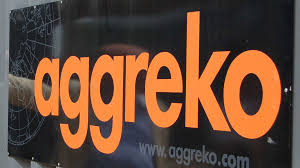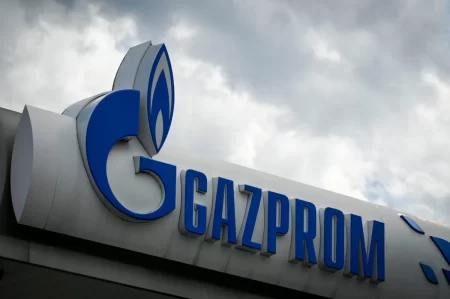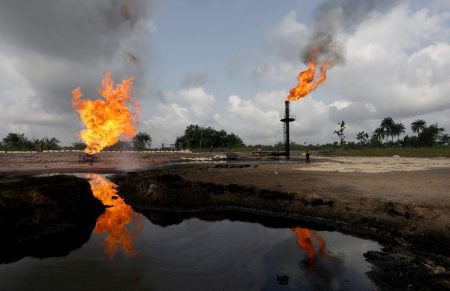Kweku Frempong
Lagos — Gas has become an increasingly impactful solution for sectors looking to effectively transition to less carbon-intensive fuels and refine their energy frameworks. It offers organisations a bridging solution that can rapidly reduce their carbon footprint and minimise reliance on diesel generators for operations in remote locations. It is a cleaner, more reliable and more cost-effective power solution that offers an attractive alternative in hard-to-reach locations. Natural gas, particularly, is dependable and expendable with a significantly lower emission level than diesel.
 Thanks to its lower emission profile, gas offers companies invaluable energy support. As they transition to more renewable energy sources such as solar, gas allows for a smooth evolution from traditional energy resources to more sustainable energy platforms. It also helps companies that face technological barriers to renewable energy adoption – they can systematically drop their carbon footprint with a gas solution while methodically upgrading infrastructure to allow for them to make a comprehensive move to renewable energy. Even though gas is still a fossil fuel, it features in many emission reduction roadmaps as it can be a key first step in reducing emissions and putting an organisation on the right path towards its net-zero ambitions.
Thanks to its lower emission profile, gas offers companies invaluable energy support. As they transition to more renewable energy sources such as solar, gas allows for a smooth evolution from traditional energy resources to more sustainable energy platforms. It also helps companies that face technological barriers to renewable energy adoption – they can systematically drop their carbon footprint with a gas solution while methodically upgrading infrastructure to allow for them to make a comprehensive move to renewable energy. Even though gas is still a fossil fuel, it features in many emission reduction roadmaps as it can be a key first step in reducing emissions and putting an organisation on the right path towards its net-zero ambitions.
For hard-to-abate sectors, such as heavy industry and heavy-duty transport, gas provides an ideal bridging solution as it is a tighter and more sustainable alternative to other fossil fuels and can be used in conjunction with renewable solutions such as wind and solar. One of the reasons why gas is ticking these boxes so effectively is the technology that has evolved around it. Virtual pipelines – the process of bringing natural gas to companies that are unable to connect to local gas pipelines or local gas service providers – deliver gas to areas that would otherwise have limited to no access. This allows for companies to use gas instead of more carbon-intensive and expensive liquid fuels as they have more room to expand their energy portfolio.
Virtual pipelines are designed to provide a regular supply of liquified natural gas (LNG) to customers lying outside the reach of infrastructure by using cryogenic tank containers that carry the gas at a liquid temperature of 162 degrees centigrade. The cooling process shrinks the volume of the gas so it is easier and safer to store and transport, and it occupies 1/600th of the space compared to when it’s in a gaseous state. This means that significant volumes can be transported long distances safely and can provide plants and operations with a crucial energy lifeline. They gain access to LNG when previously they would have been forced into using more expensive and carbon-intensive energy solutions.
On the road to hybrid, gas also drives reliable energy provision straight into the heart of organisations that operate within energy-intensive sectors and that are under pressure to deliver and perform. Using this solution, these companies can rely on a consistent supply of energy in remote and rural locations so they can stay on target and remain within the tight timeframes and expectations of their investors and markets. Using this energy solution, they are also meeting these targets without compromising on their carbon reduction commitments and strategic imperatives as these are as important to investors and markets.
Aggreko partnered with a mine in a rural location to secure the provision of energy using a virtual gas pipeline that spanned more than 650km. The investment by the mine into this platform will result in a reduction of CO2 emissions by 25, 000 tonnes over the next three years and is designed to help the mine reach its zero-emission targets. The solution gave the mine the space it needed to switch from diesel to cleaner fuel and take more sustainable steps towards its energy provision without an extensive level of capital expenditure.
At Aggreko, we are already LNG, CNG and LPG ready which means that we have the infrastructure and expertise organisations already in place. Further, Aggreko has a well-established partnership with gas suppliers and a deep understanding of their industry. We are actively involved in the rapidly developing small-scale LNG supply value chain and are working to enable it where possible, and we continue to provide virtual gas pipeline solutions for leading companies across multiple sectors, globally.
* Kweku Frempong, Head of Sales – West & Central Africa, Aggreko
Follow us on twitter



